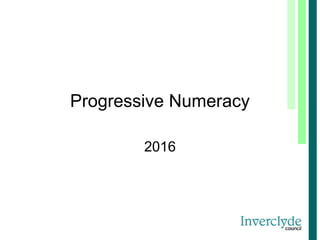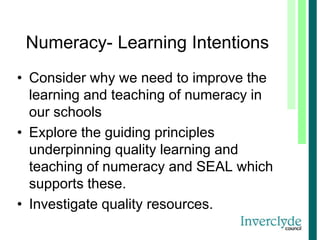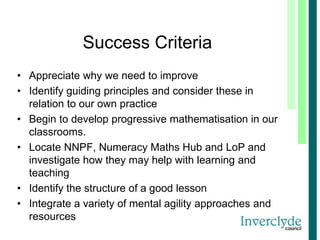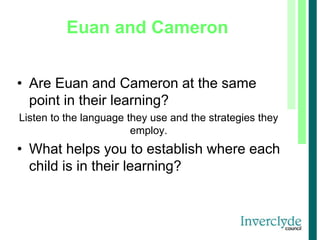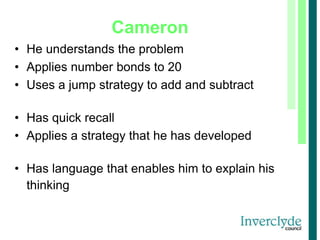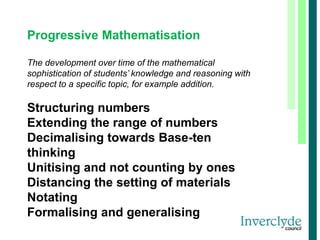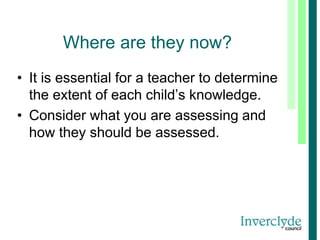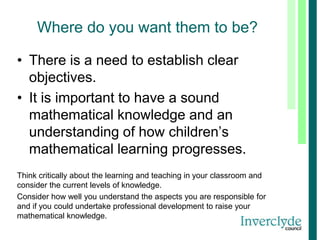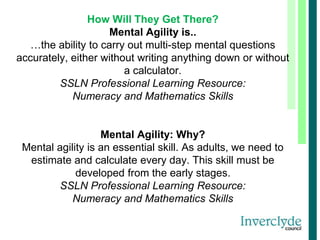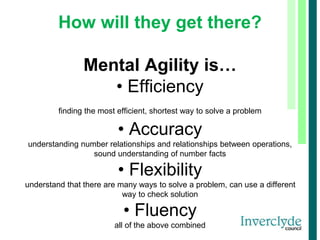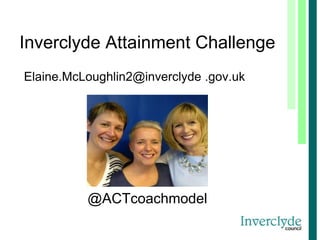This document provides guidance on improving numeracy teaching. It discusses the need to assess students' current abilities and establish clear learning goals. A good numeracy lesson includes 15-20 minutes of mental agility exercises followed by core teaching and a plenary session. Mental agility involves solving multi-step problems accurately in various ways. Quality instruction develops more sophisticated problem-solving strategies over time through activities like number talks and daily practice. Formative assessment informs flexible grouping and differentiation strategies to meet individual student needs. The document provides resources on progression frameworks and lesson planning approaches to support numeracy development.
